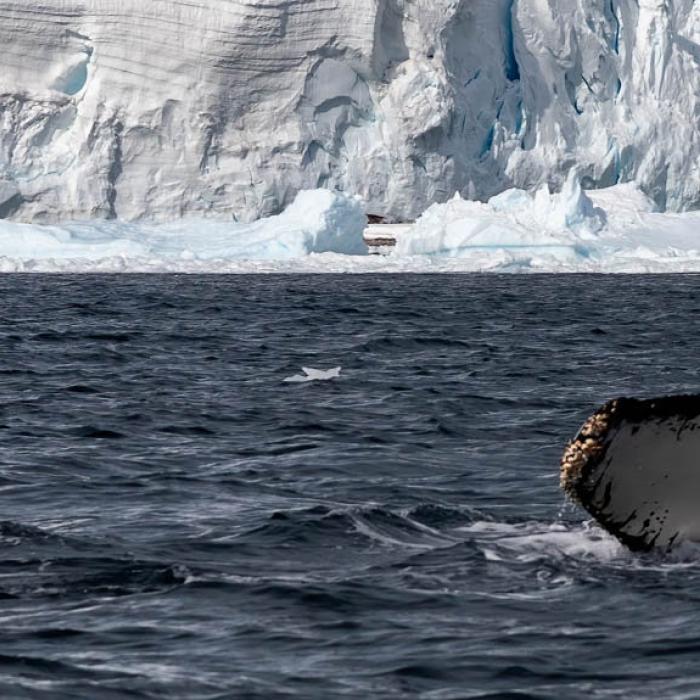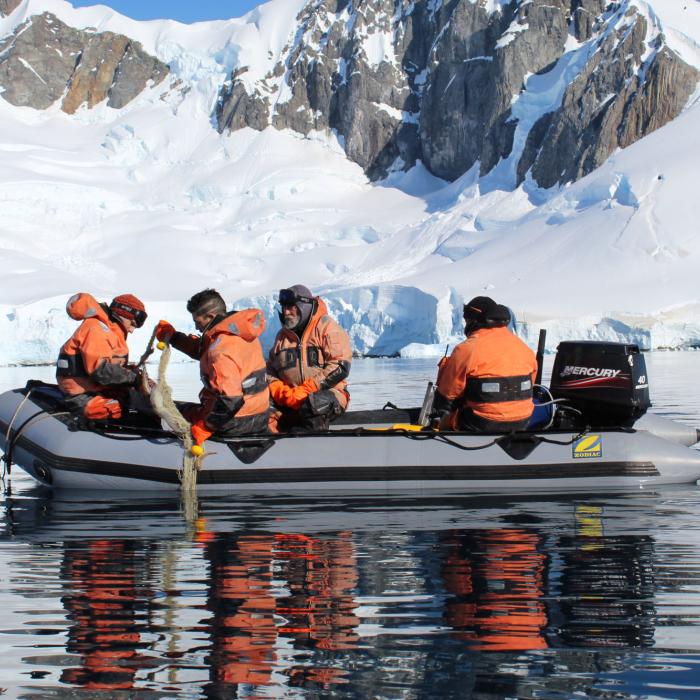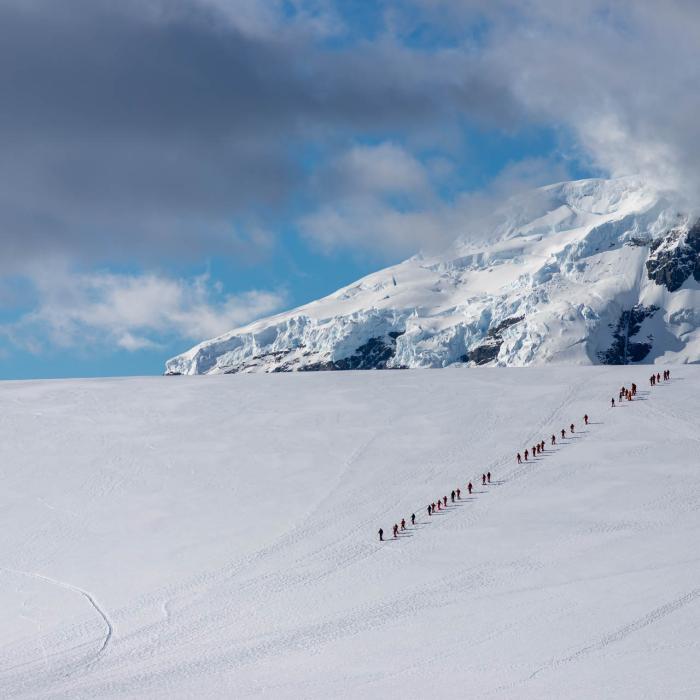
Safeguarding Antarctica: IAATO Responds to Research on Anchoring Impacts in the Southern Ocean
Recent coverage of a study on seafloor damage in Antarctica, published in the research journal Frontiers, has sparked meaningful conversations about the impact of human activity in one of the world’s most protected ecosystems.
The research titled “Anchor and Chain Damage to Seafloor Habitats in Antarctica: First Observations” suggests that ship anchors may be contributing to the destruction of the seabed near research stations and anchor sites in the Antarctic Peninsula. This concern deserves further investigation.
At the International Association of Antarctica Tour Operators (IAATO), we welcome this kind of research and appreciate that many of our members are actively supporting field studies, including this one. Research that enhances our understanding of how human activity affects Antarctica is crucial. It provides data-driven insights that can inform more effective policies, promote transparency and sharing of best practice, and ultimately enhance environmental protection in this unique region.
IAATO has long recognised the importance of monitoring human activity, including anchoring practices. The Antarctic Treaty System’s mandatory Post-Visit Report (PVR) process already provides a mechanism for recording anchoring and dynamic positioning in the region. While anchoring reporting is voluntary, several IAATO members already submit this data, demonstrating their proactive approach to environmental responsibility.
This commitment aligns with IAATO’s broader mission to ensure that tourism in Antarctica is conducted safely, sustainably, and with minimal environmental impact.
While the study offers valuable insights, it represents a snapshot in time. One of the 36 sites examined showed signs of anchor damage and is used by a variety of stakeholders. Given this, along with the dynamic environmental conditions and evolving operational practices in Antarctica, IAATO welcomes the opportunity to thoroughly review the findings through its relevant committees and working groups. This will support a deeper understanding of the study’s implications, help assess alignment with our existing protocols and inform ongoing efforts to enhance operational standards and drive innovation in sustainable practices.
Antarctica holds immense global significance, and the responsibility to protect it is shared among scientists, governments, tour operators, and visitors alike. IAATO remains committed to collaborating with researchers, regulators, and stakeholders to ensure that human activity, including tourism, continues to support - not threaten - the values of conservation and stewardship.
Through transparency, data sharing, and a willingness to adapt, IAATO and its members are continually evolving to safeguard this remote and majestic region that unites us all.


